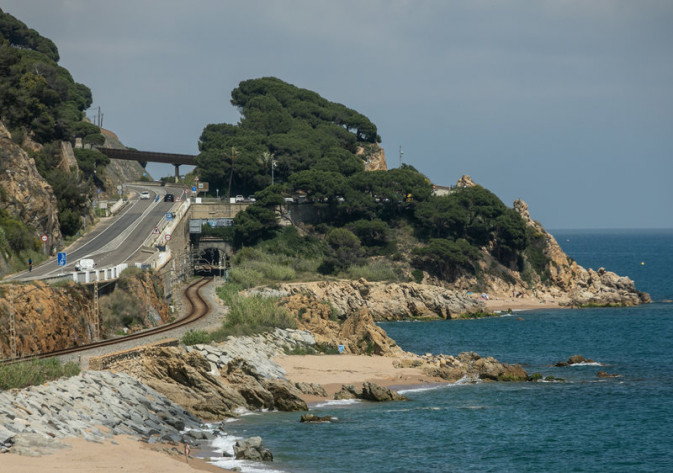
La platja de Calella , amb la via del tren i la carretera N-II a tocar QUIM PUIG
REST-COAST project highlighted in Catalan media for its holistic approach to coastal restoration
The REST-COAST project has recently gained visibility in Catalonia through two feature articles, available in the regional El Punt Avui online newspaper, highlighting the project’s efforts to address coastal erosion and biodiversity loss through nature-based solutions. These publications included an interview with project coordinator Prof Agustín Sánchez-Arcilla of the Polytechnic University of Catalonia, who emphasised the urgent need to adapt to sea level rise and intensifying storms along Europe’s coastlines.
Highlighting the importance of dune restoration through the creation of coastal marshes and submerged dikes to stop waves, Prof Arcilla says that the impact that climate change is having on the Catalan coastline is increasing each year, as the sea level rises by an average of four millimetres. In addition, changes are being detected in the direction of the waves, since recently there have been more episodes of wind from the south than from the east, which means that the composition of the beaches is different and maintenance must be adapted to this change.
REST-COAST is one of the EU’s leading initiatives for restoring coastal ecosystems in response to climate change. Its work not only targets international audiences and policymakers, but also aims to engage local authorities and communities at each of the project’s nine pilot sites. In Spain, efforts are focused on the Ebro Delta (text is in Catalan), a region particularly affected by erosion and flooding, making it a valuable testing ground for long-term solutions.
In the second feature, REST-COAST’s project coordinator highlights the severe coastal erosion affecting Catalonia since the 1960s, which is threatened by urban infrastructure, such as railways, highways, and breakwaters, that block natural sand transport. He explains that climate change, notably accelerated sea-level rise and shifts in wave direction, compound these issues by diminishing river sediment flow, making coastal protection increasingly urgent.
The full article can be found here (text is in Catalan).
The articles detail a range of innovative strategies tested at the Ebro Delta site, such as small, resilient dunes and marshes that help absorb wave energy. These nature-based measures offer promising alternatives to traditional sand replenishment methods, which often prove short-lived.
As public awareness of coastal vulnerability grows, such media coverage is a welcome opportunity to connect REST-COAST’s scientific work with the communities most directly affected.